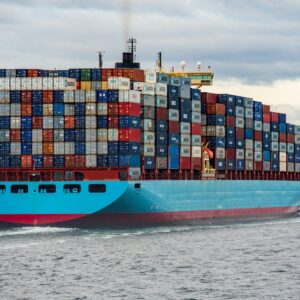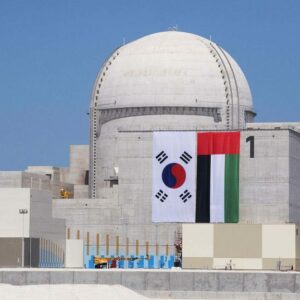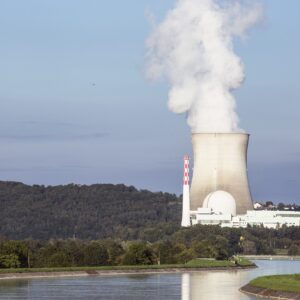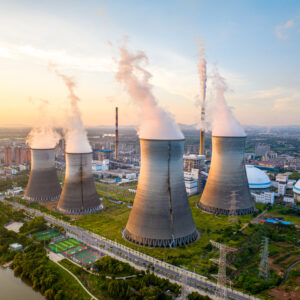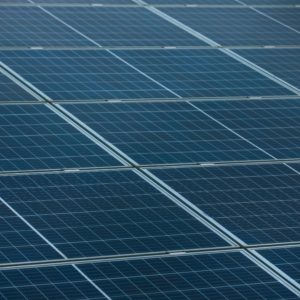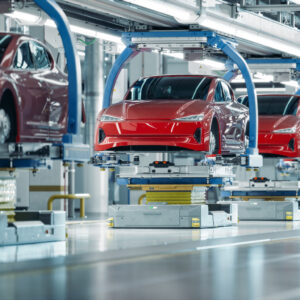By reducing competition and keeping interest rates high, tariffs raise costs for consumers and deter the adoption of clean technologies.
The Olympic windsurfers and rowers fighting invasive alien species
"Invasive species can be a particular concern in ports and harbours due to the movement of a large number of boats, as well as the sheltered environments they provide. In Weymouth Harbour alone, 18 different non-native species were found in 2023. These include Japanese kelp which grows quickly on hard surfaces such jetties and moorings, outcompeting native kelp; slipper limpets which settle in wave-protected areas like marinas where they smother other seabed species and consume planktonic larvae; and trumpet tubeworms which gather in huge numbers to form large reef-like structures. But, says Read, by carrying out a simple 'clean, check, dry' procedure we can minimise the introduction and spread of such invasive species."
Trade is key to countering China’s clean energy dominance
"Support for increased economic openness, new trade agreements and the World Trade Organization is already retreating in Washington. It would be a major policy error, however, to conflate concerns about imports from China with concerns about trade more broadly. Indeed, the only way to effectively counter China’s dominance in clean energy technologies is to embrace more, not less, trade with most other nations."
Exclusive: Gulf state UAE considers a second nuclear power plant
"The UAE awarded Korea Electric Power Corporation (KEPCO) a $20 billion contract in 2009 to design, build and operate four reactors in Abu Dhabi towards the border with Saudi Arabia."
Serbia plans to develop nuclear energy, reversing a 1989 ban on nuclear
"A preliminary study is now planned to provide an analysis of the available technologies and requirements to help inform decisions to be taken. The development of nuclear energy is now considered by the Serbian Government a key development for the sovereignty and independence of the country, while simultaneously protecting the environment and the health of the citizens."
China and U.S. Both Eye Breakthrough EV Technology
"One advantage of sodium over lithium is that it is far more abundant. When lithium prices went ballistic two years ago, sodium batteries looked like they also would provide a cheaper alternative. With lithium prices having fallen back to earth, sodium’s cost advantage might have disappeared. Nevertheless, sodium offers a potential choice to hedge against volatile lithium prices. However, sodium batteries have lower energy density and might not be suitable for longer-range EVs. They might be a better choice for energy storage systems or low-end EVs. That is especially important for China, where smaller EVs with lower ranges have been popular with consumers."
Protect Democracy by Expanding U.S.-Paraguay Relations
Increased relations between the U.S. and Paraguay would benefit both nations.
Committee to evaluate nuclear power option for Norway
"'The committee shall provide an updated knowledge base on various types of nuclear power technology, technological maturity, assumed time perspective for scale-up and commercial availability, and costs. An account must also be given of relevant investment factors and requirements for infrastructure, including the need for network connection and what requirements must be made for a suitable location.'"
Private firms are driving a revolution in solar power in Africa
"Namibia, one of the sunniest countries, last year made it easier for private producers to sell electricity into the regional power pool. It sees its future role as more of a platform for the buying and selling of electricity than as a generator and distributor. But others are resisting change. Senegal, Mozambique and Tanzania, for instance, still tangle up dre firms in red tape. Other countries are hoping that the 'geopolitics of solar' will mean that foreign powers seeking influence in Africa will pay to build the solar plants that their bankrupt utilities cannot otherwise afford, argues one industry veteran."
Europe Needs More Cheap EVs. Tariffs Will Keep Prices High
"'Shielding automakers from competition and stopping consumers from accessing affordable EVs today is not going to help them meet their climate goals, nor will it help their domestic industries,' Aleksandra O’Donovan, who leads BloombergNEF’s Electrified Transport research team, said in an interview. 'At the moment, it feels as though the decarbonization targets might not be the priority.'"


